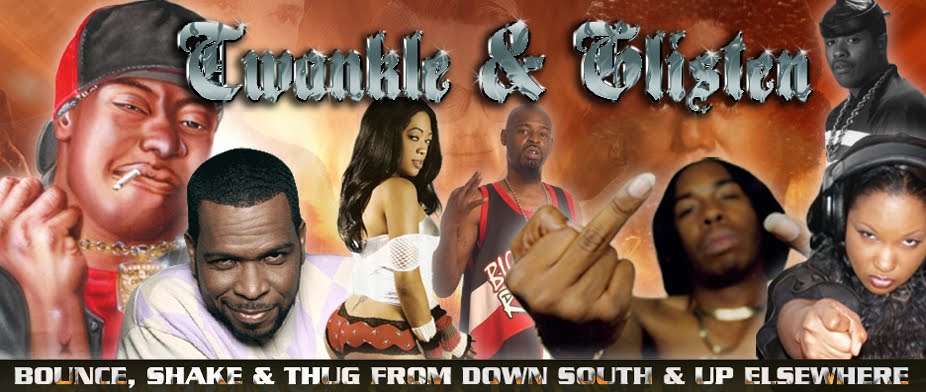
(2005, Roadburns)
In anticipation of 10th Ward Buck's forthcoming The Definition of Bounce: Between Ups and Downs in New Orleans, T&G will be taking a look at earlier books of interest to fans of Bounce/Buck/Bass/Booty/etc... First up is Triksta, the only book I know of to deal with Bounce Rap exclusively.
Tagline:
A white alien in a black world, with no funding or qualifications, and not a clue what he was doing, Nik Cohn had to rethink himself from scratch.
So, Nik Cohn is some old UK dude who wrote the first book about rock music or something. 35 yrs later does the same for Bounce music, for better or worse. Somehow a lifelong love of the city, a hep C diagnosis and the thrill of acknowledged racist fear lead Cohn to New Orleans in search of a Bounce artist polished enough for a Dreamworks contract and national exposure. Although dude doesn't really like Bounce music, he sees in it some potential for Missy Elliot-like creative expansion, a development he encourages by bringing to the studio a "treasure trove" of samples: John Adams, Cheb Khaled, Cambodia Rocks, Nortec collective. Needless to say, he doesn't get too far with it though I would love to see on youtube a clip of Nik trying to get DJ Duck to cut up "
Nixon in China". The awkwardness culminates in a showcase concert/reading in France (based on the idea that it would be a lot easier for Europeans to "get" Bounce than Americans) where Take Fo's
Junie Bezel (whose
Thats How Mess Get Started I'll be posting soon) performed alongside
Benjamin Diamond, who ran DJ Duck's production thru his laptop for remixing. They did not get paid for the performance.
Worth mentioning:
a) Cohn reports that Soulja Slim was known as a youngster for his haircutting skills and 50 pairs of reeboks. KLC: "Slim was a fool with clippers. He was nice with the haircutting tools."
b) Take Fo main man Earl Mackie won't play rap music in his home on account of his strict adherence to Jehovah's Witness principles.
I suppose this is really a book about a man who tried to change Bounce music but instead Bounce music changed him. In the end, the only people likely to read it are those already interested in Bounce music and who could really give a shit about Cohn's failings with the genre and his emotional growth in New Orleans and whatever the fuck else.
 Willie Puckett "Doggie Hopp"
Willie Puckett "Doggie Hopp"











